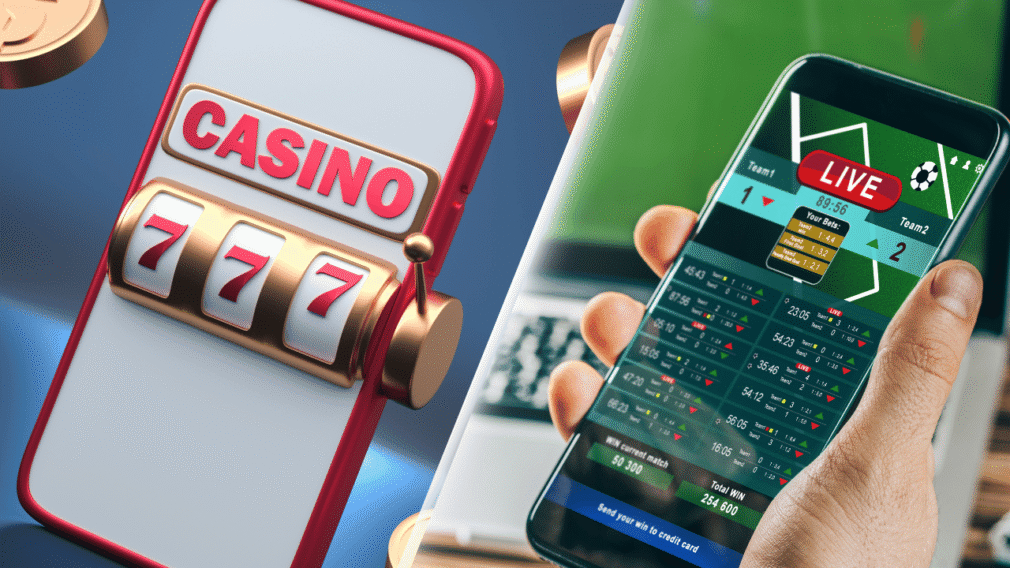iGaming vs. Sports Betting: What’s the Difference and Which is Riskier?
iGaming is a broad umbrella term that encompasses all forms of online gambling, including online casinos (slots, table games, live dealer), poker, bingo, and lotteries. Sports Betting is a specific subset of iGaming focused exclusively on wagering on the outcomes of real-world athletic competitions, such as NFL games or NBA matches.

The core difference is simple: iGaming is generally a game of chance with instant, computer-driven results, while sports betting is a prediction based on real events, knowledge, and waiting. This distinction has major implications for legal availability, house advantage, and the inherent risks of problem gambling.
Key Distinctions Between iGaming and Sports Betting
The two types of wagering differ fundamentally in their mechanics, speed, and house advantage.
Game Mechanics: Chance vs. Skill/Knowledge
| Aspect | iGaming (Online Casino) | Sports Betting |
| Outcome Driver | Random Number Generators (RNGs). Outcomes are mathematically random and fixed by the game’s rules (e.g., slot spins, digital roulette). | Real-World Events. Outcomes are determined by the performance of teams and players in a physical event. |
| Pace and Availability | 24/7 Access and Instant Results. Games are fast-paced and continuous (e.g., a 5-second slot spin). | Event-Timed. Tied to real-world schedules, requiring a wait for the game to finish (e.g., a 3-hour NFL game). |
| Skill/Knowledge | Low or Mixed. Success relies heavily on chance (slots, roulette) with some skill in games like poker or blackjack. | High. Success requires knowledge of statistics, injuries, matchups, and betting trends to find an edge. |
Financials: House Edge and Profit
The casino’s built-in advantage, known as the House Edge (or Vig in sports), differs significantly and impacts long-term profitability.
| Comparison | iGaming House Edge | Sports Betting Vig |
| House Advantage | High. Typically ranges from 5% to 15% for slots, 2.7% for European Roulette, and can be as low as 0.5% for perfect strategy Blackjack. | Low. Typically 4% to 5% (seen in the standard -110 odds on a point spread). |
| Operator Profit | Higher. Due to the fixed, mathematical advantage, online casinos generate a greater profit margin on every dollar wagered. | Lower. Sportsbooks profit by balancing bets on both sides of a line to ensure they collect the commission (vig). |
Legal Landscape in the U.S.
The most noticeable difference is in accessibility and legality across the United States.
- Sports Betting: Legal in over 38 U.S. states plus D.C. (as of 2025). The widespread acceptance is driven by its close cultural ties to major leagues like the NFL.
- iGaming (Online Casino): Strictly limited to only 7 U.S. states (New Jersey, Pennsylvania, Michigan, West Virginia, Delaware, Connecticut, and Rhode Island). This restricted status is largely due to historical resistance from land-based casinos and greater regulatory concern over the risk profile of constant, 24/7 access.
Risk Profile: Why iGaming Poses a Higher Threat
Both types of gambling carry financial and emotional risks, but iGaming is generally considered the more challenging for problem gambling due to its mechanics.
- Speed and Impulsivity: The instant, repetitive nature of slots and digital table games shortens the gap between placing a bet and receiving a reward. This speed is psychologically taxing and heightens the risk of impulsive betting, making it easier to rapidly exhaust funds.
- Availability: iGaming is accessible 24 hours a day from any device, removing natural friction points like traveling to a physical casino or waiting for a game to start. This constant access is a key factor in the acceleration of problematic behavior.
- Illusion of Skill in Sports Betting: While sports betting is not a guaranteed money-maker, the ability to apply research and statistics creates an “illusion of skill” that may lead to overconfidence. However, for many users, the event-timed nature of sports betting still provides natural breaks that iGaming lacks.
Studies have shown a surge in gambling addiction help-seeking that correlates with the introduction of online wagering, with online casino products often leading to more “irresponsible” behavior than online sports betting.
Recommended
